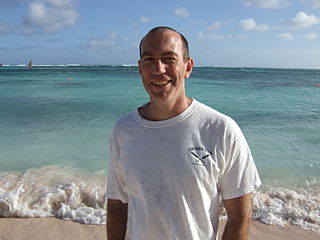A Quote by Donna J. Haraway
The cyborg would not recognize the garden of Eden; it is not made of mud and cannot dream of returning to dust.
Related Quotes
But I have to say this in defense of humankind: In no matter what era in history, including the Garden of Eden, everybody just got here. And, except for the Garden of Eden, there were already all these games going on that could make you act crazy, even if you weren't crazy to begin with. Some of the crazymaking games going on today are love and hate, liberalism and conservatism, automobiles and credit cards, golf, and girls' basketball.
I've learned a lot about women. I think I've learned exactly how the fall of man occured in the Garden of Eden. Adam and Eve were in the Garden of Eden, and Adam said one day, Wow, Eve, here we are, at one with nature, at one with God, we'll never age, we'll never die, and all our dreams come true the instant that we have them. And Eve said, Yeah... it's just not enough is it?

































